July 23, 2024 – Retreat Center Inspection, Online Meeting with JTS India
Today, before the meditation retreat, Sunim inspected the Seonyudong Training Center, Mungyeong Retreat Center, and Bonghwa Retreat Center, and then held an online meeting with JTS India volunteers.
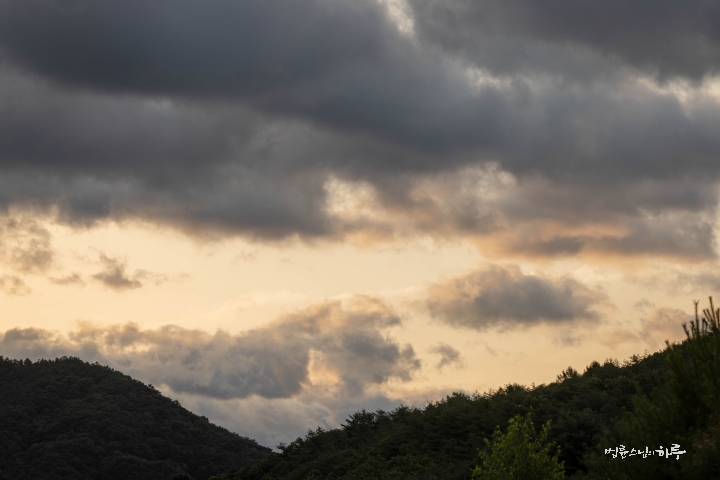
After spending the night at Seonyudong Training Center, Sunim completed morning prayers and meditation. At 8 AM, he held a meeting with the Dharma teachers in the training center’s conference room to prepare for the India pilgrimage.
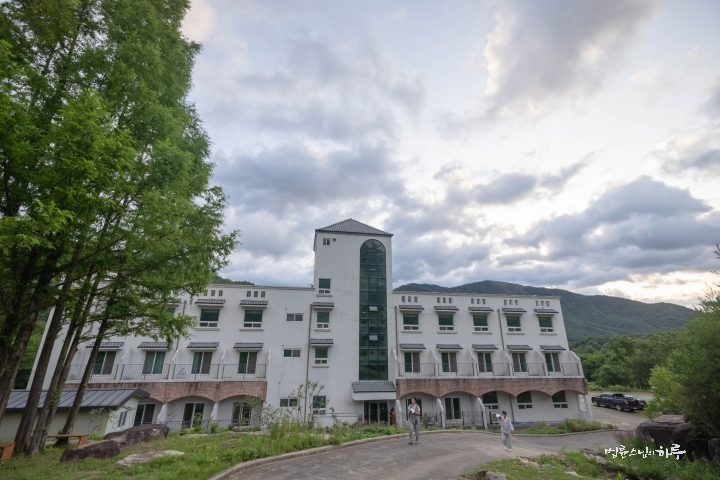
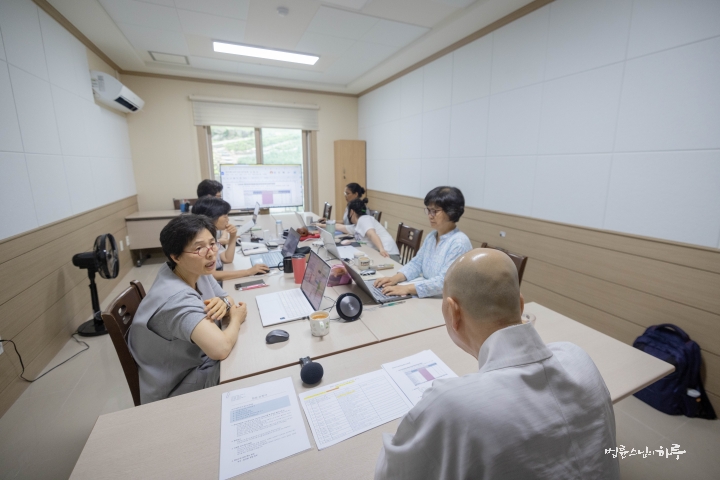
After checking the status of applicants, flight reservations, accommodation preparations, bus rentals, and programs for the India pilgrimage, the meeting concluded at 9:40 AM. Sunim then took a walk around the training center.
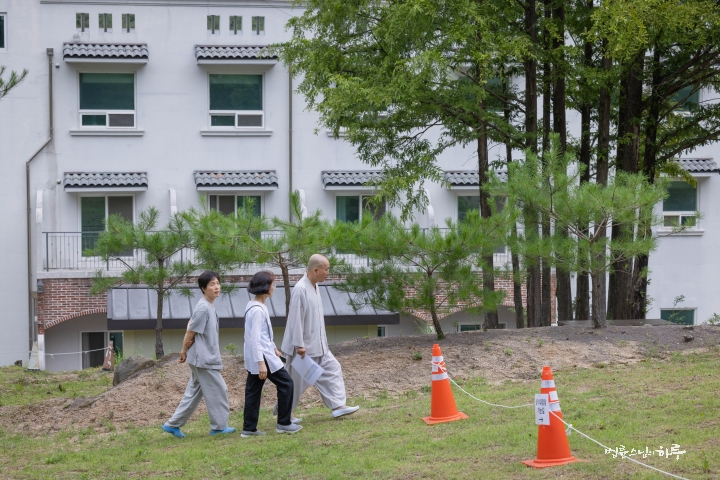
The day after tomorrow, offline participants of the meditation retreat will be staying at this training center. Sunim inspected every corner to ensure everything was well-prepared.
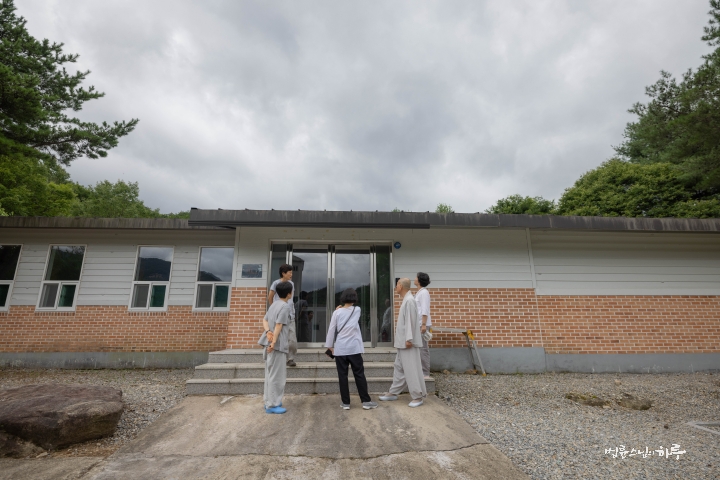
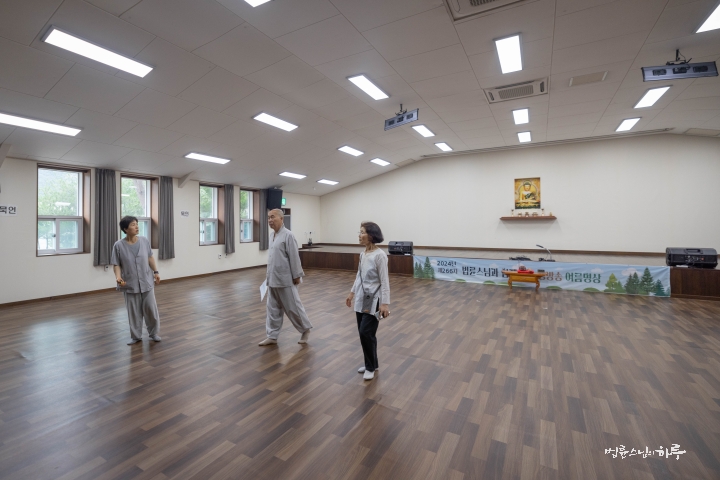
The retreat volunteers had arrived a few days earlier and were busy preparing the grounds. Sunim expressed his gratitude to the volunteers working hard in the hot summer and took a commemorative photo with them.
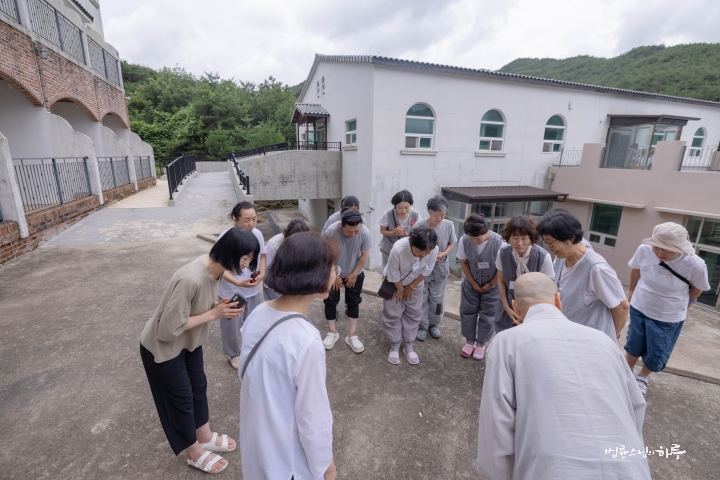
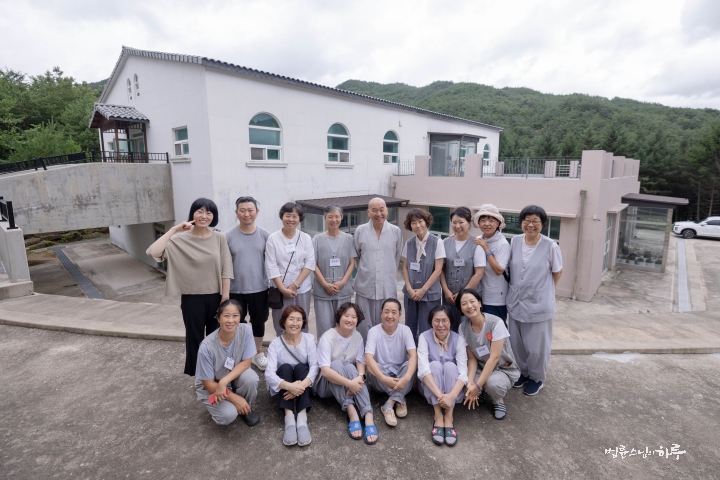
At 10:10 AM, Sunim departed for Goesan. After a 30-minute drive, he arrived in Goesan, where community members undergoing medical treatment are staying. As Sunim arrived, Bhikkhuni Myohyang rushed out with an umbrella.
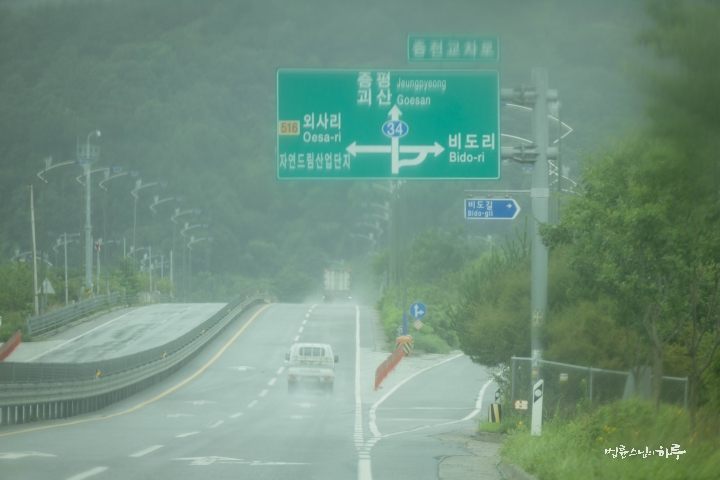
After exchanging greetings with three bows, Sunim inquired about the patients’ well-being.
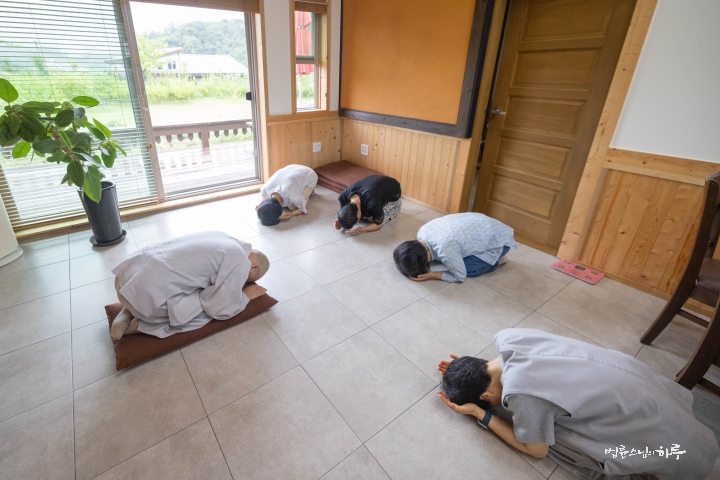
“How is your health?”
“We’re doing well.”
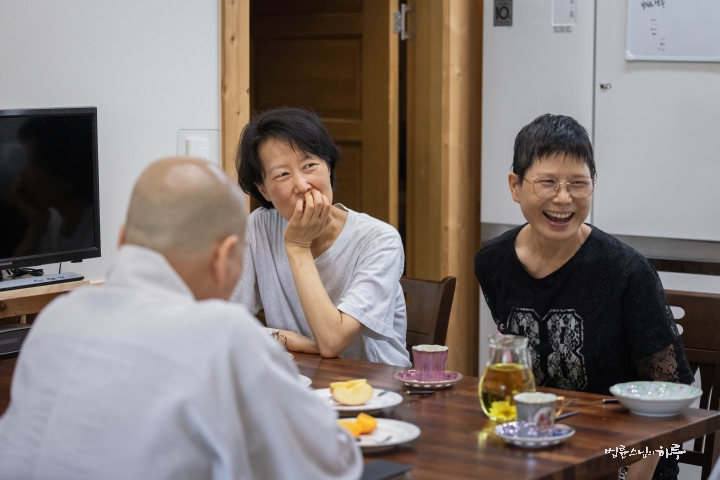
After discussing their treatment, beneficial foods, and various other topics, Sunim encouraged the patients to focus on their treatment with peace of mind.
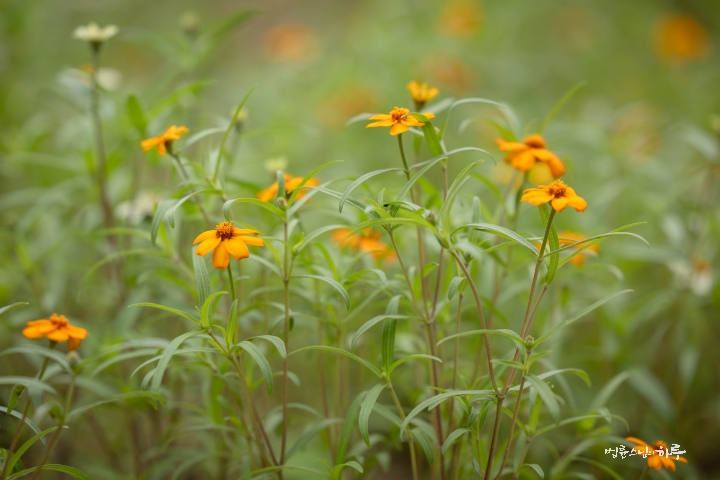
Sunim returned to the training center for lunch.
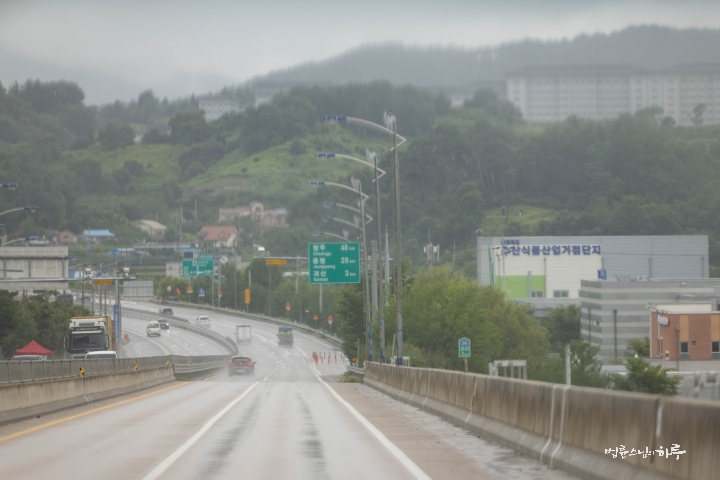
After lunch, at 12:15 PM, Sunim headed to Mungyeong Jungto Retreat Center. Hearing of Sunim’s arrival, the trainees gathered at the living quarters.
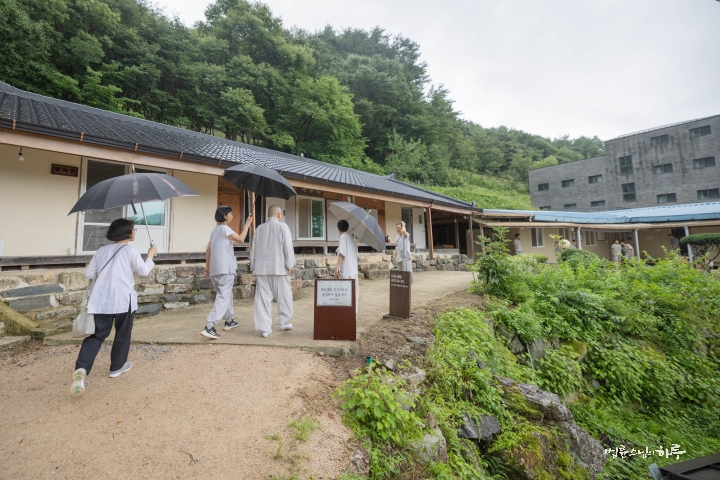
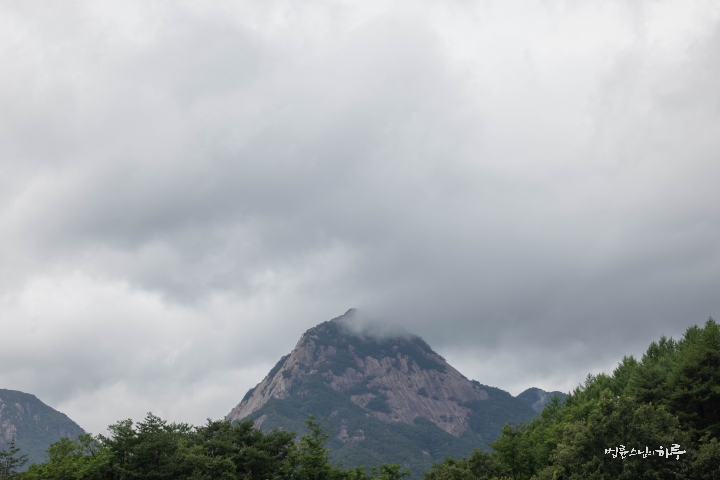
As the trainees greeted Sunim with three bows, he offered some words of wisdom.
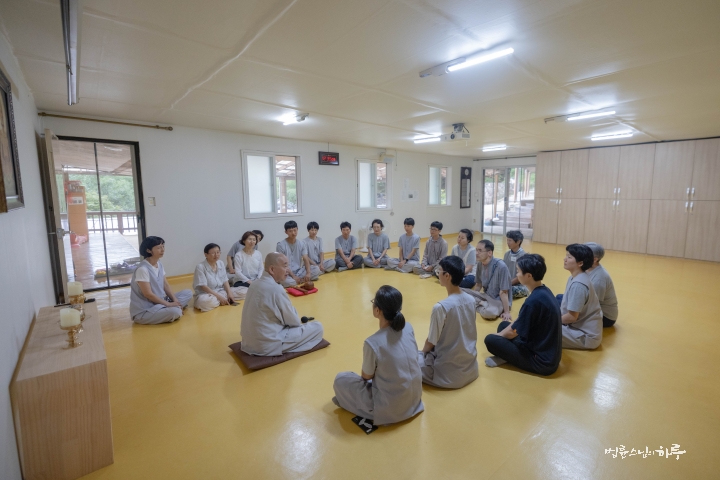
“Is everyone doing well?”
“Yes.”
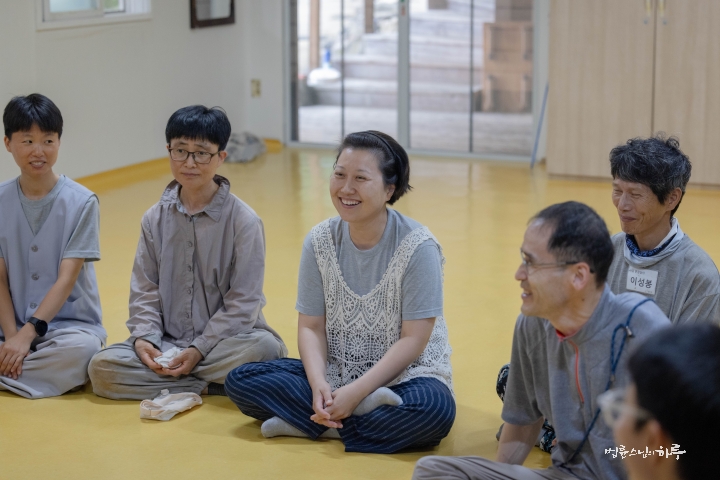
Each trainee introduced their assigned roles. They were responsible for various tasks including managing the training center, preparing for retreats, participating in the 49-day Mungyeong program, accounting, preparing for meditation retreats, and farming.
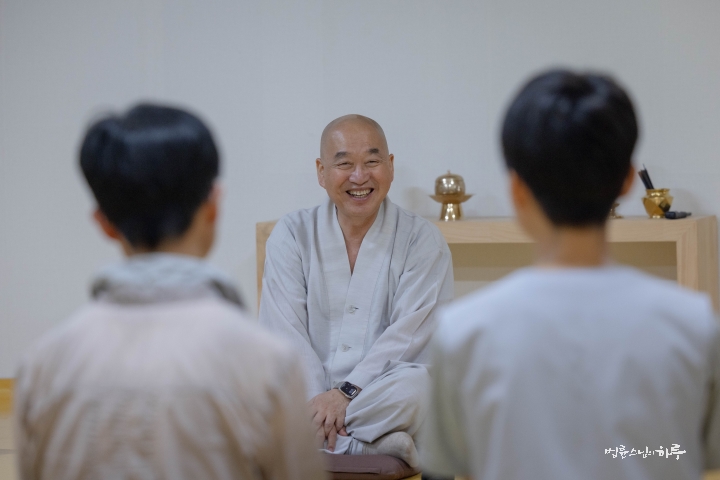
“Are you having any difficulties with your studies?”
“It’s fine so far.”
“If it’s fine so far, do you think it will be difficult in the future? If it’s been good until now, you’ll continue to do well. Keep studying hard, everyone.” (Laughter)
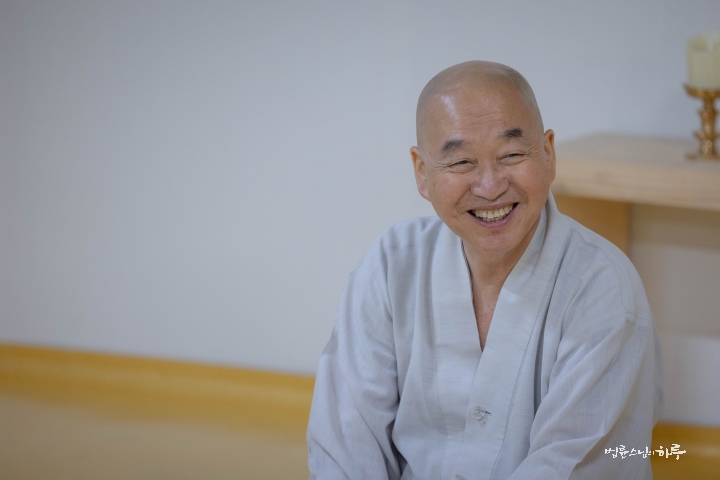
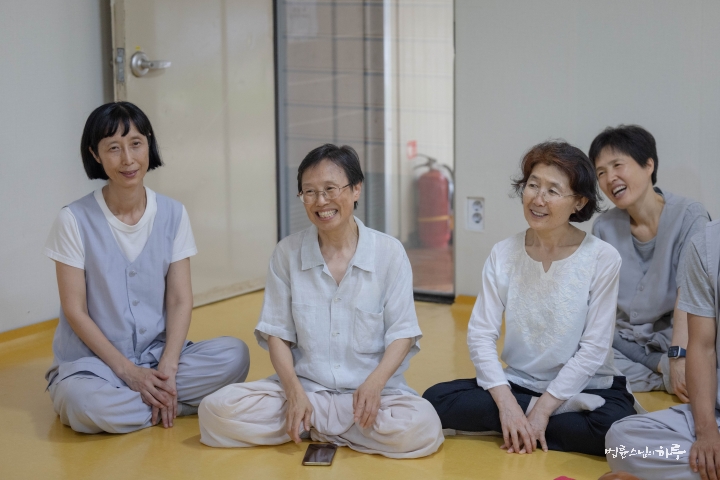
After leaving the living quarters, Sunim checked the preparations for the meditation retreat starting the day after tomorrow. During the retreat, Sunim will guide the meditation online from the broadcasting room set up in the meditation hall of the Mungyeong Retreat Center.
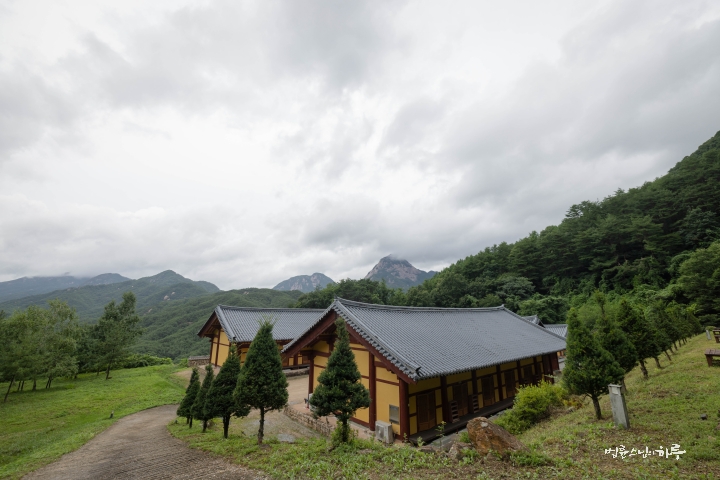
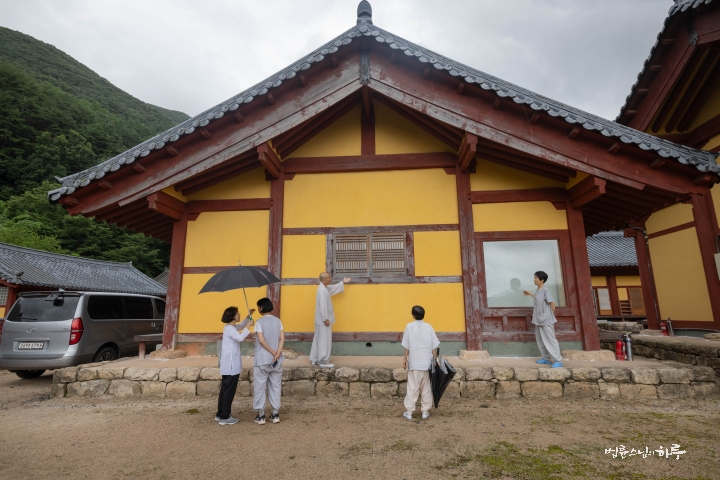
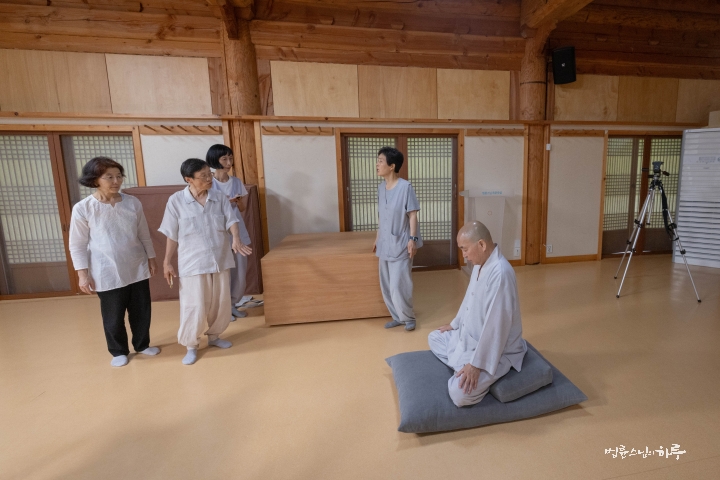
After confirming that the broadcasting facilities and other areas were well-prepared, Sunim took his seat in the broadcasting room. From 1:30 PM, he held an online meeting with JTS India volunteers from the broadcasting room in the meditation hall.
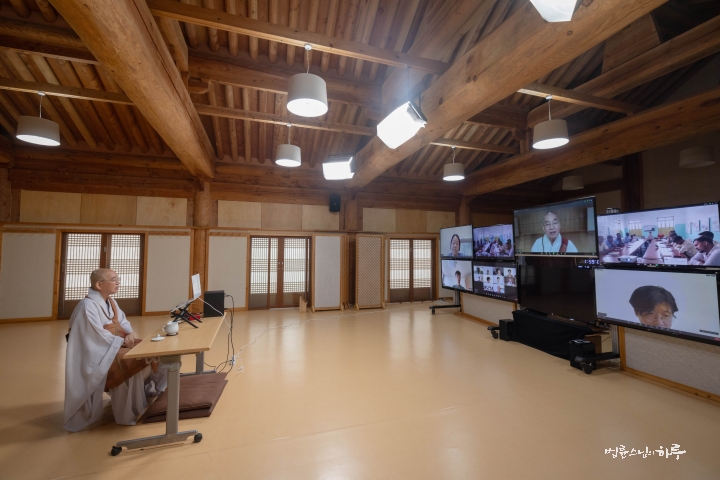
First, an Indian staff member who had participated in emergency relief efforts for flood victims in the Assam region of India reported on the activities and shared their impressions.
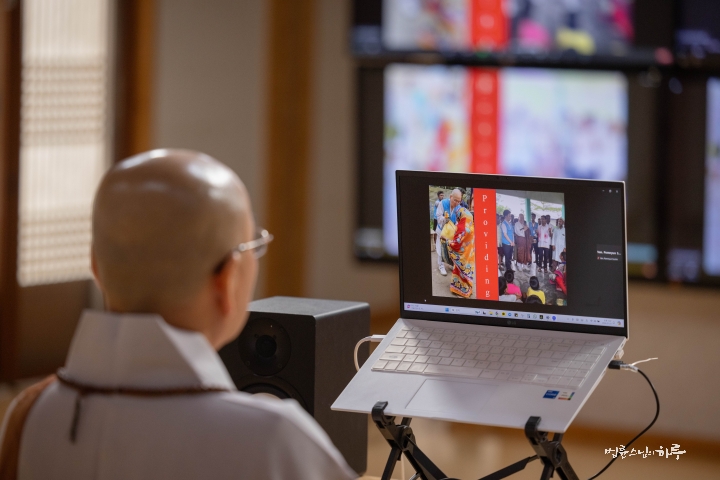
Pawan, representing the five staff members who participated in the emergency relief efforts, shared his thoughts:
“Before departing for the emergency relief, we had a general meeting to discuss how to conduct the relief activities in the flood-affected Assam region. When asked ‘Who will go?’, no one raised their hand, so I decided to take on the responsibility. After taking charge, I was determined to ‘provide help where it’s truly needed!’ We first surveyed the entire flood-affected area and selected three villages to start preparing for relief activities. We did our best with a light heart, and it was good that Sunim joined us at the end. I’m glad we were able to complete the relief activities successfully and return.
When we visited the affected areas, the conditions were really bad, and people were living in difficult situations. Seeing those scenes sometimes made my heart ache. We also completed the emergency relief well and returned safely. Thank you for giving us the opportunity to do this work.”
Everyone applauded to encourage Pawan and the five JTS India volunteers who had done well in the Assam emergency relief activities.
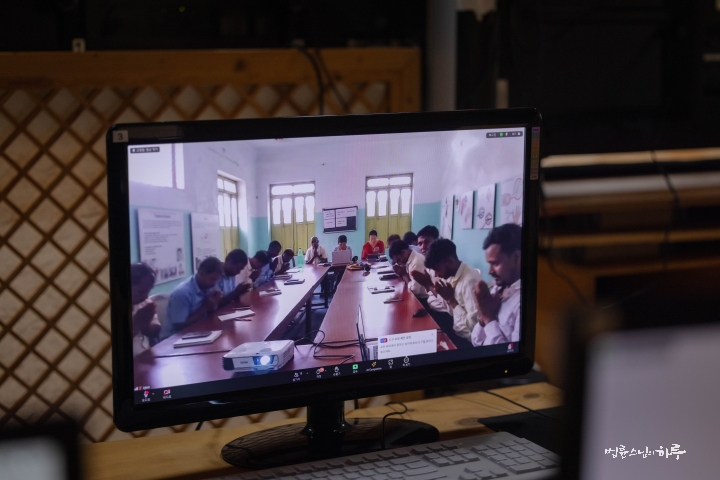
Then, the JTS India volunteers asked Sunim for his words. Sunim greeted them with a welcoming face.
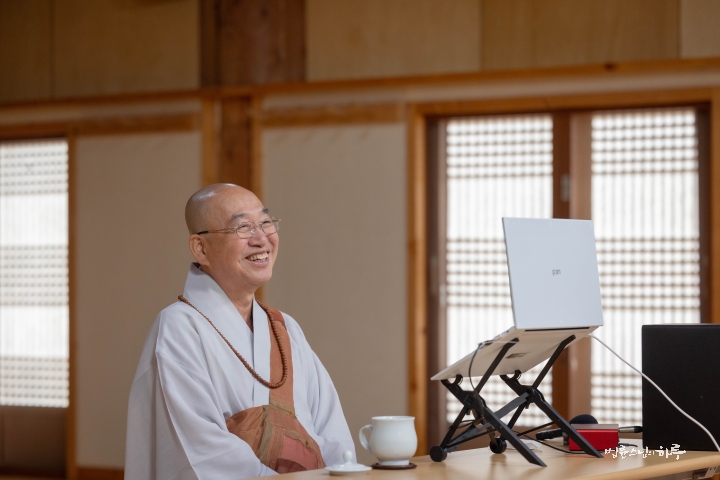
“Namaste! Have you been well? This summer has been exceptionally hot, and you’ve worked hard to help the flood victims in the Assam region. Fortunately, with the arrival of the rainy season, the temperature has dropped significantly, making living conditions a bit better, although it’s still humid.
I was also in Bhutan, Assam, and Bangladesh during the rainy season, and the weather seemed very similar to Dungeshwari. The weather in Bangkok, Vietnam, and Cambodia is also quite similar. While there was heavy rainfall causing floods in some areas, and even landslides in Bhutan, it didn’t rain much during my visit, allowing me to complete my inspection schedule safely.
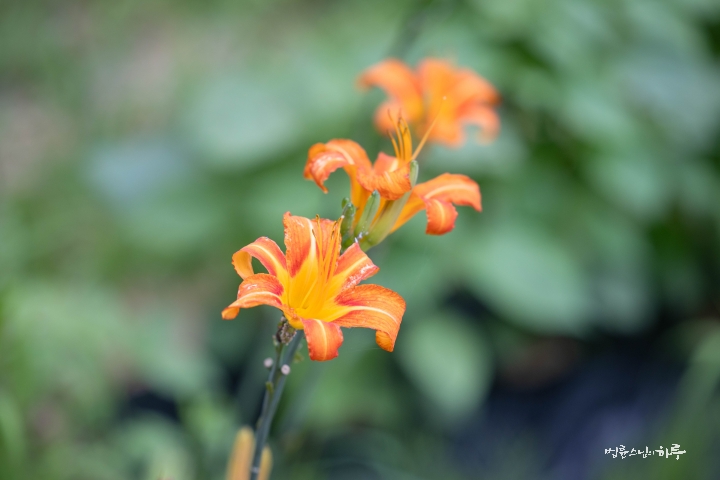
From Being Helped to Helping Others
While we have a lot of work with schools, hospitals, and villages, it brings me great joy that you were able to provide even a small amount of help to the many people suffering from the floods in Assam. I believe you must have felt proud as well.
When you were young, you only received help, but now you’ve become adults, and Dungeshwari has also somewhat established itself. Now, you should be able to actively step forward to support not only the people in need in Dungeshwari village but also those who have suffered disasters or difficulties across India and in other countries.
These days, I’m working to help people in the most remote areas of Bhutan. It’s about a 15-hour drive from Paro, and I hope that some of you will be able to go there in the future to help with what they need.
When helping people who have faced difficulties, the main tasks usually involve building houses, repairing homes, and maintaining irrigation systems. Therefore, skills like plastering, bricklaying, carpentry, and electrical repairs are most important. Don’t just settle for your role as a teacher; if you’ve decided to engage in relief activities around the world in the future, you should learn these skills one by one. I hope you can become someone who can be helpful when needed.
Holding a pen, teaching, and looking at documents might be advantageous in your neighborhood, but when you go out to work around the world, these skills are hardly needed. Whether it’s driving or operating heavy machinery, you should learn one of these skills so that you can play a role whenever necessary.”
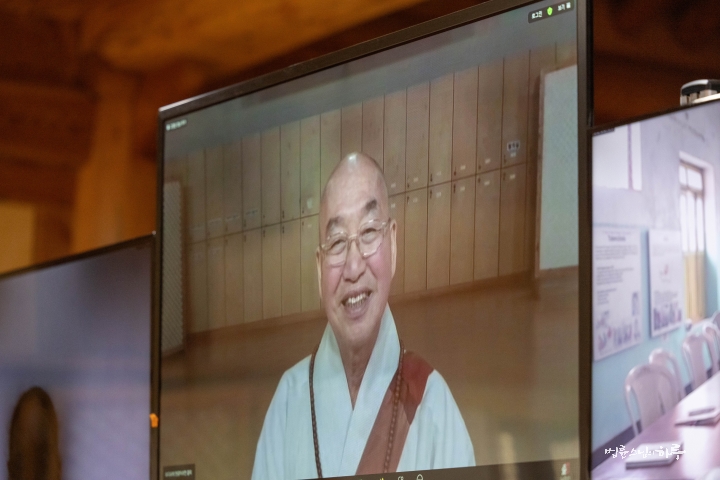
Then, it was time for everyone to share their questions or concerns about their activities. Various questions followed. One person expressed concern about frequent land disputes and asked for Sunim’s advice on how to manage their feelings.
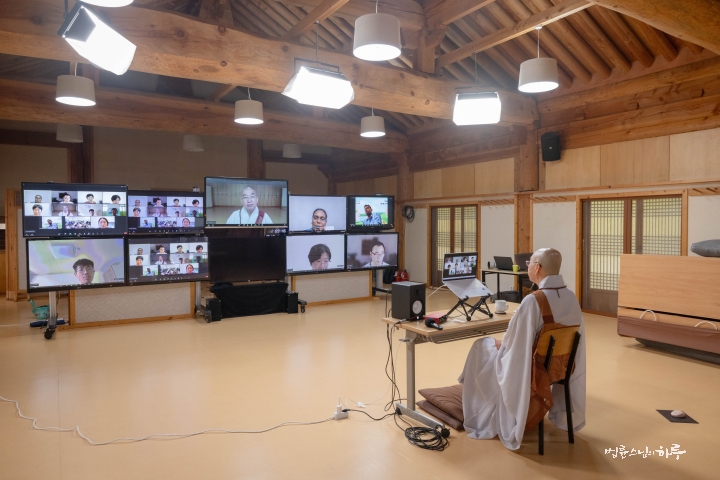
I’m Worried About Land Disputes, How Can I Manage My Feelings?
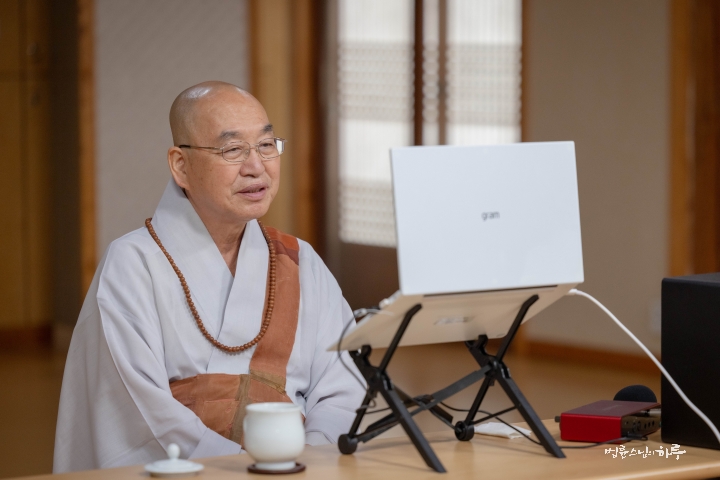
“This world doesn’t always work the way we want it to. Even when we act correctly, others often don’t keep their promises. Some people think they can gain something by being forceful, raising their voices, and making unreasonable demands. However, if we give in to such people, it doesn’t end with just that one incident. It sets a precedent, and word spreads that throwing tantrums and causing trouble will get results, making things even more complicated.
If you have accurate contract documents, the first step is to try to resolve the issue through dialogue. If that doesn’t work, you may need to seek a court decision. Taking a problem to court incurs various costs, including lawyer fees. That’s why people often fight among themselves, trying to gain more benefits, rather than seeking legal solutions. This is how disputes arise in this world. It would be nice if there were no such conflicts, but since this is the reality of our world, we must accept it.
Don’t worry or stress about these issues. Instead, accept that ‘this is how the world is’ and continue to resolve matters through dialogue. Don’t fight. Through conversation, you can come to understand the other person’s feelings. For someone who’s being stubborn due to hurt pride, you might try softening the situation with a heartfelt gift. If dialogue absolutely fails to resolve the issue, then you may need to seek a legal judgment, even if it costs money. Try to resolve problems in this order. Don’t worry too much.
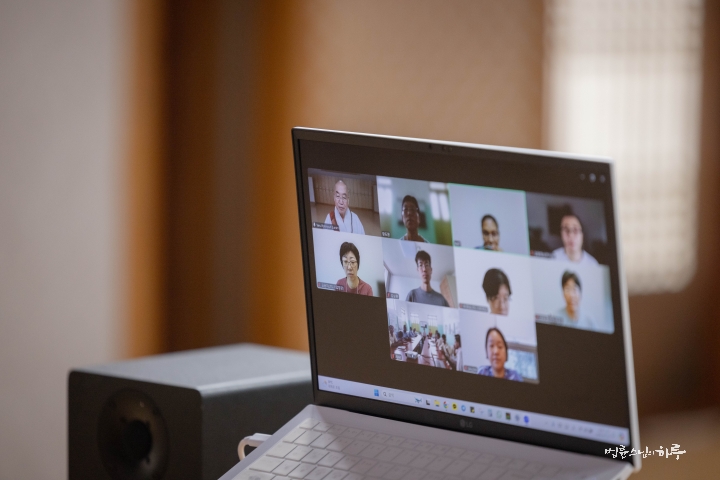
You’ll continue to face these issues in India. Land prices there have increased nearly 100-fold in the past decade. Previously, there weren’t many land disputes between siblings or neighbors. But with land prices soaring, everyone’s become greedy for profitable opportunities. This isn’t just happening with JTS; you’ll see these problems arising between siblings and neighbors more frequently. Land that people were willing to give away ten years ago has now become a sensitive issue as its value has increased 100 times.
Constantly thinking, ‘It wasn’t like this before,’ and dwelling on the past will only make you angry and stressed. First, try to resolve issues slowly through dialogue. If you fight and become enemies, even solvable problems become unsolvable. Second, whether right or wrong, sometimes an appropriate gift can help resolve the issue. Third, if the other party is being completely unreasonable, and neither words nor gifts work, then you may need to take it to court, even if it’s costly. Going to court doesn’t guarantee a fair judgment. The outcome can depend on how much you pay your lawyer. If it goes to the third trial and a final verdict is reached, you’ll have to accept it.
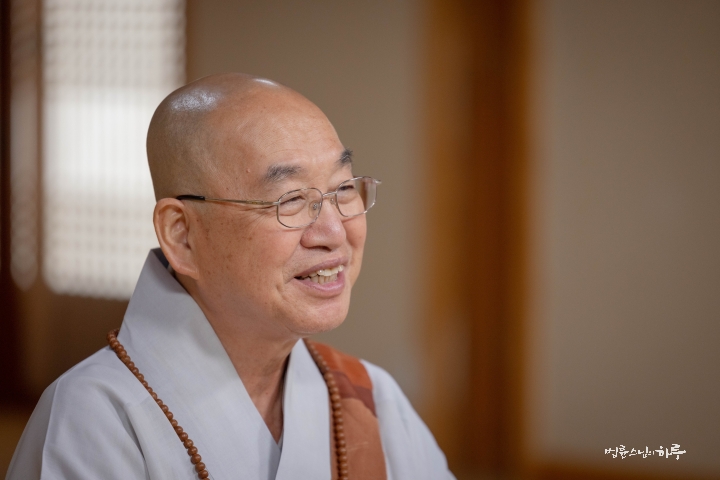
Until now, you’ve lived peacefully in quiet rural areas without needing to go to court. But now, as disputes over interests arise, we’re entering a world where courts become necessary. From now on, when buying things or lending money, you need to accurately prepare receipts or contracts that can serve as legal evidence. The current land dispute arose because in the past, things were done based on verbal agreements, with good intentions. But now that land in this area has become valuable, those old relationships-based practices are causing problems. These issues are likely to increase in the future as land prices rise and interests become more complex. Right now, it’s just the school that’s an issue, but later it could be the kindergarten too. While various problems may arise, there’s no need to worry excessively. Resolve them one by one through dialogue, and if that doesn’t work, seek legal solutions.
Unlike in the past, people nowadays are particularly money-oriented. For instance, I heard that if someone reports you for drinking alcohol, the police will come and arrest everyone, then demand 10,000 rupees each for release. You can’t work in the old way, trusting just anyone from the same village. As society has changed like this, you can’t proceed with just verbal agreements anymore, even for small purchases. Whether buying land or borrowing money, make sure to have legally binding contracts and get receipts. Also, if you or your village receives such threats, don’t be alarmed; inform JTS immediately. Let’s resolve these issues step by step with expert advice.”
“I understand. Thank you.”
The questions continued.
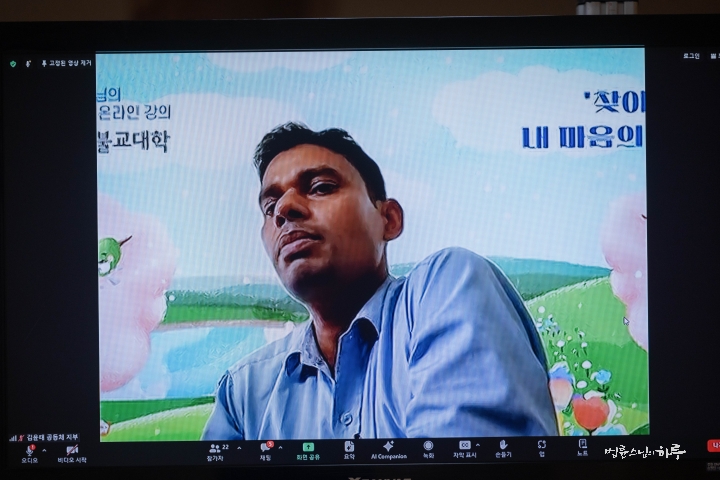
The cost of bringing a Taekwondo teacher to the school is too expensive. Are there any alternatives?
Land issues have distanced villagers who used to be like family. How should we handle this situation?
As the conversation progressed, it was already time to conclude. Sunim gave his closing remarks.
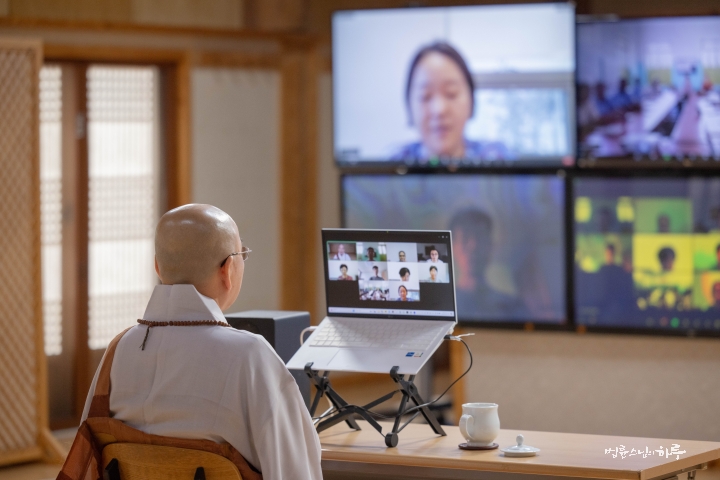
“Everyone, please continue your hard work. There will be another meeting in the fall, and in a few months, I’ll visit Sujata Academy again during the Indian pilgrimage. If you have any difficulties, let’s have another online meeting. We’ll talk more when I visit during the pilgrimage.”
The online meeting ended at 3:30 PM.
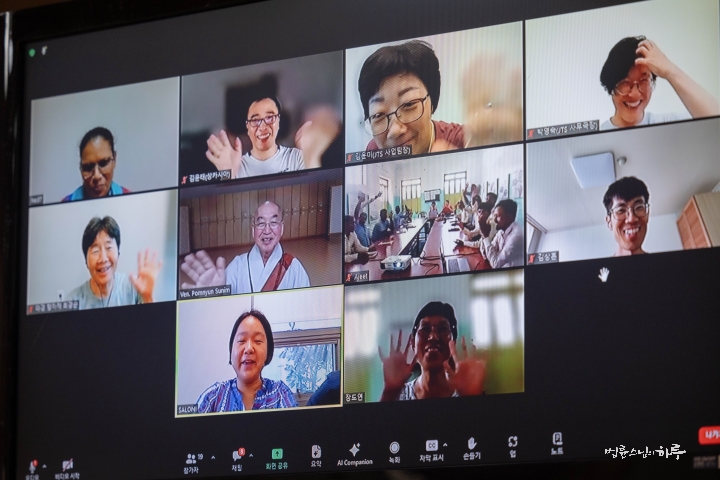
Sunim immediately got in the car and headed to Bonghwa Retreat Center. After a 1 hour and 40 minute drive, he arrived at Bonghwa Retreat Center at 5:10 PM.
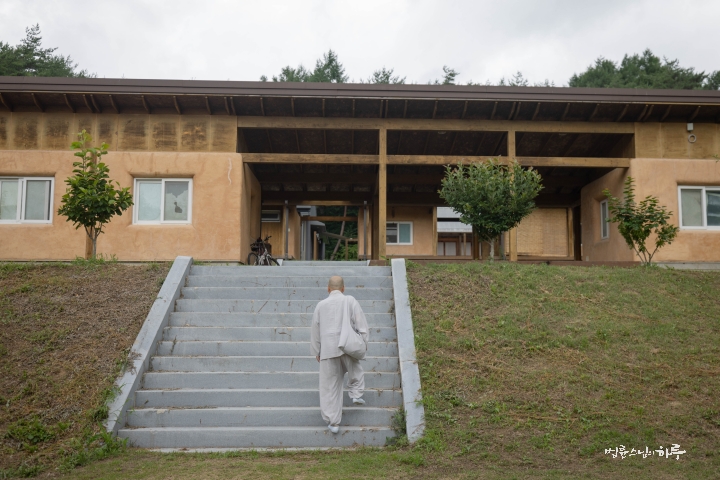
At Bonghwa Retreat Center, the community branch members will start their summer retreat tomorrow. After inspecting the grounds to ensure everything was well-prepared, Sunim attended to some work and had dinner.
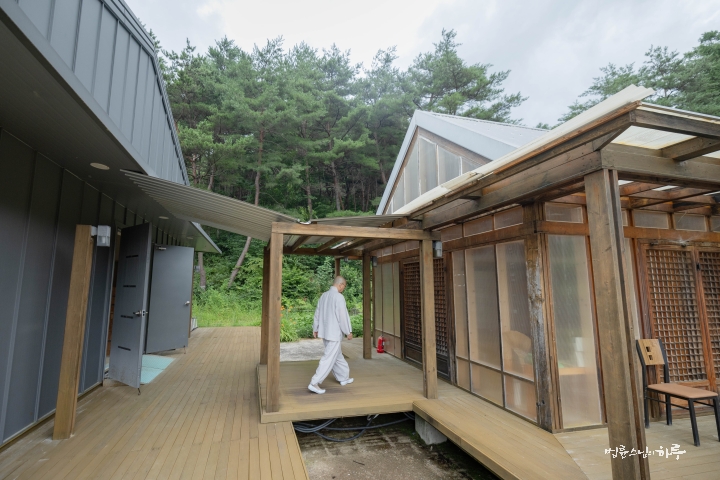
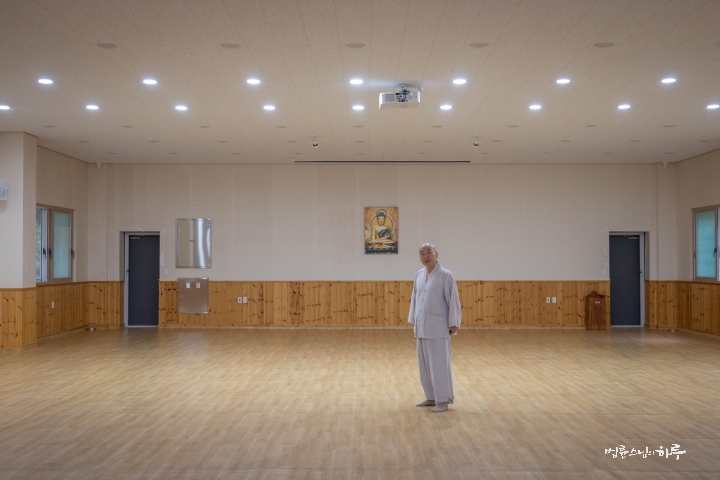
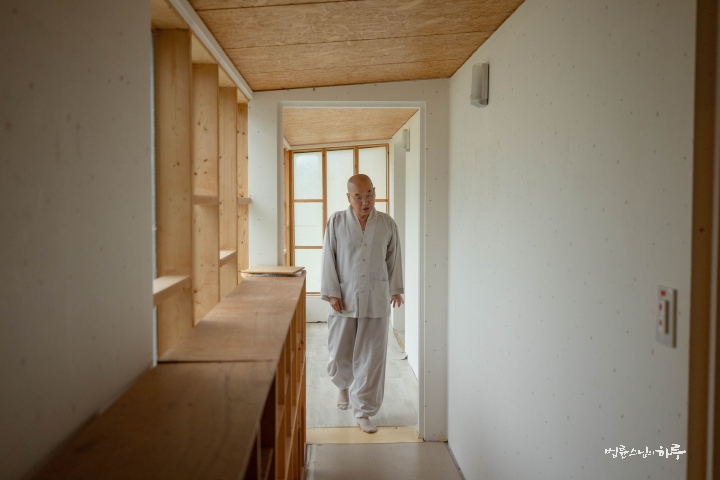
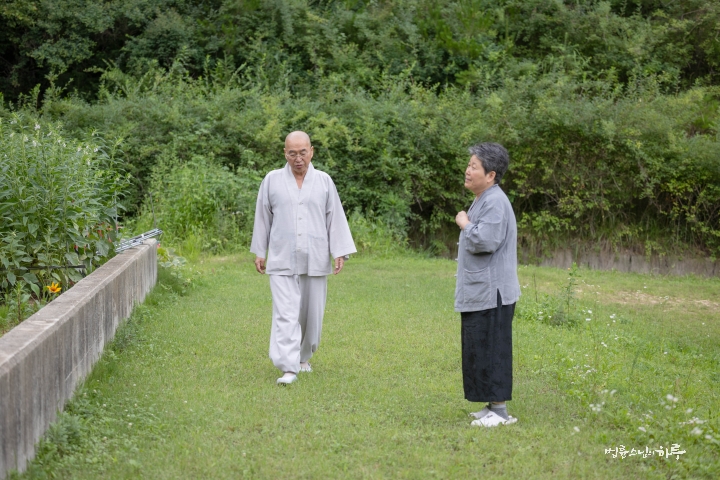
As the sun set, Sunim departed from Bonghwa Retreat Center at 7:20 PM and headed to Seoul. After a 2 hour and 40 minute drive, he arrived at the Seoul Jungto Center at 10 PM, concluding his day’s activities.
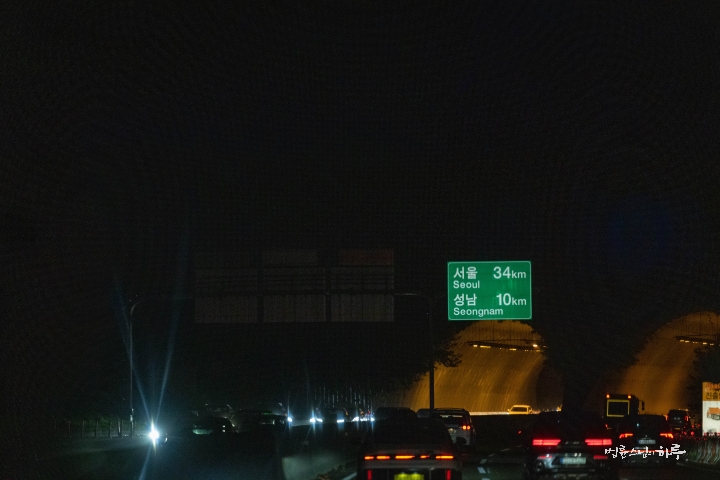
A Day in the Life of Sunim was translated by AI.




